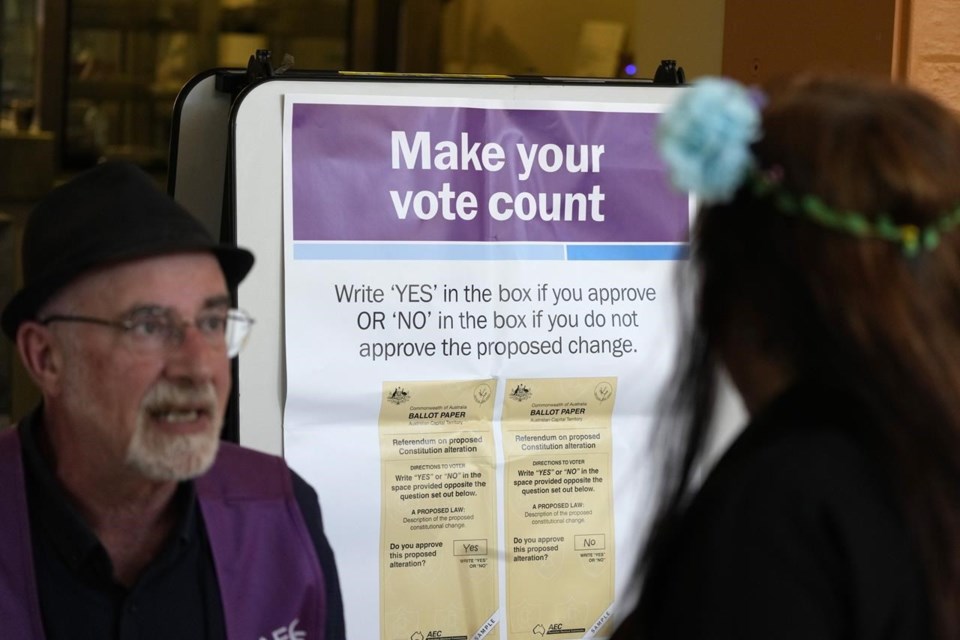CANBERRA, Australia (AP) — Australians resoundingly rejected on Saturday a referendum proposal to create to offer advice to Parliament on policies that affect Indigenous people — the nation's most disadvantaged ethnic minority.
The government proposed the first constitutional change since 1977 as a step forward in Indigenous rights. But the vote divided Indigenous leaders as well as the wider community.
More than 59% of voters opposed the so-called with almost half the votes counted by Saturday. The loss is unofficial but is not contested.
Prime Minister Anthony Albanese blamed his political opponents' campaigning against the measure for the failure. No referendum has ever succeeded without support of the major parties.
Albanese promised on the day he was elected last year to hold the referendum and accepted responsibility for his government's decision to proceed despite evidence it was doomed.
“I had a duty, as a conviction politician, to put that to the Australian people,” Albanese told reporters.
Bipartisan support is widely regarded as essential for an Australian referendum's success. Only eight of 45 referendums have succeeded in the constitution's 122-year history and none without the support of the major political parties.
Voice advocate Tanya Hosch, who spent a decade on developing the model, said she was devastated by the result.
“There's going to be a lot of pain and hurt and dismay and we’re going to need to take a moment to absorb that message and what it says,” Hosch said.
Voice advocates had hoped that listening to Indigenous views would lead to more effective delivery of government services and better outcomes for Indigenous lives.
along racial lines without reducing Indigenous disadvantages. They also said it could be a first step toward Indigenous claims for repatriation and compensation.
Accounting for only 3.8% of the population, Indigenous Australians die on average eight years younger than the wider population, have a suicide rate twice that of the national average and suffer from diseases in the remote Outback that have been eradicated from other wealthy countries.
Rod Mcguirk, The Associated Press




